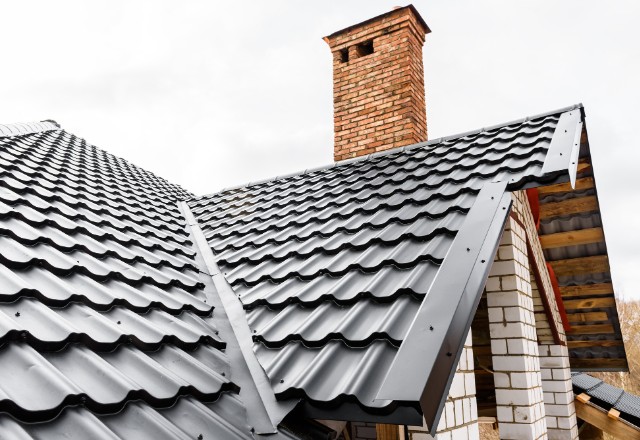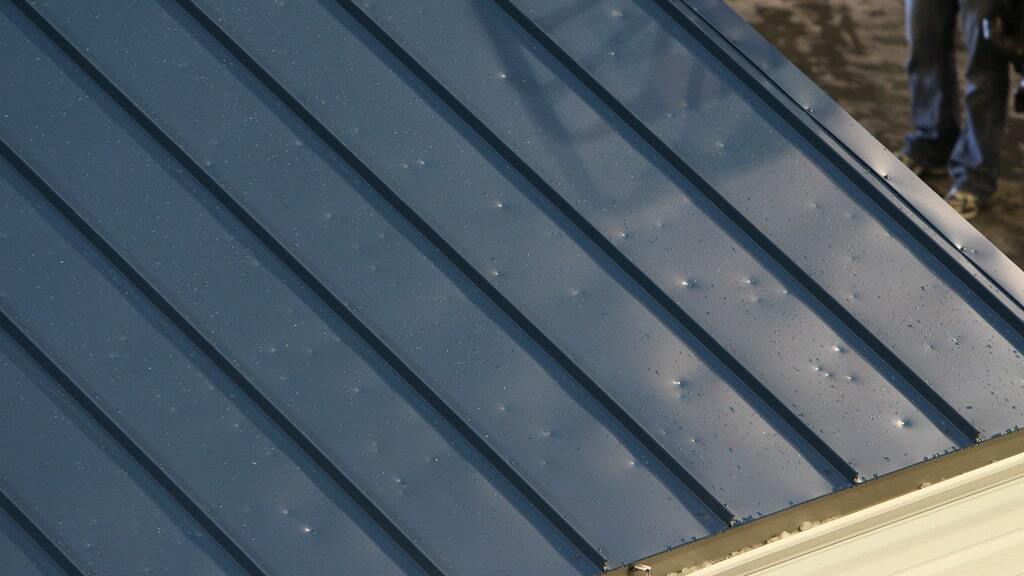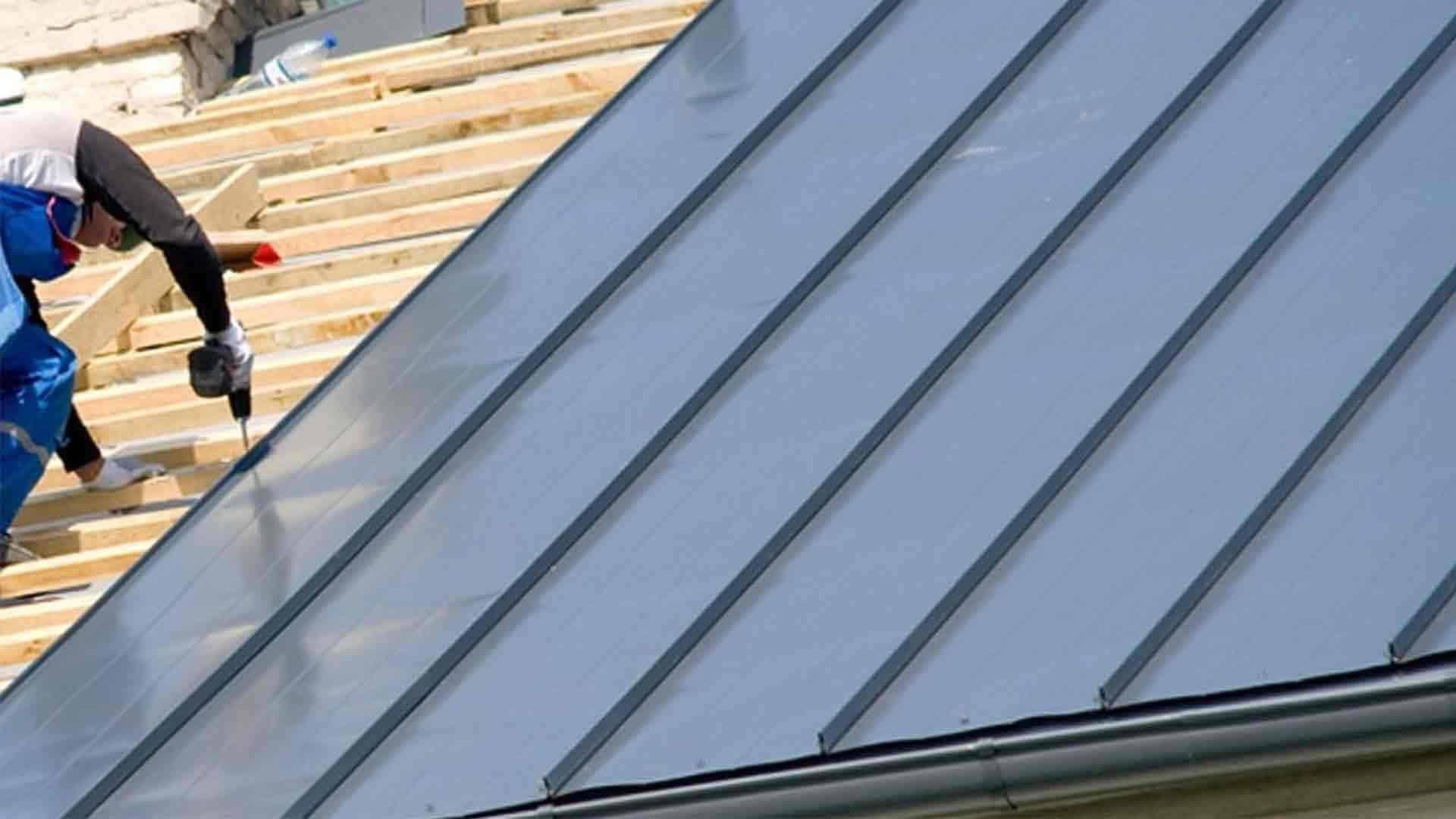
Choosing the right roof for your home is a big decision, therefore it’s best to understand metal roofing pros and cons before you purchase. A metal roof is a popular option, especially for lovers of industrial or modern homes. While metal roofs offer significant advantages, there are also some considerations to be aware of. In this article, we’ll break down the pros and cons of metal roofing to help you decide whether to install this type of roof over another.
Pros of a Metal Roof: Why Homeowners Are Choosing this Material
Metal Roofing is Both Durable and Long-Lasting
One of the most attractive benefits of metal roofs is their longevity. While traditional asphalt shingles often need replacing every 15-20 years, well-installed metal roofing can last 40-70 years, depending on the material. The long lifespan of metal roofs makes them a durable and reliable choice, potentially saving you money without needing to learn how to replace roof shingles over the years.
They’re also known for their strength and resilience. They can withstand harsh weather conditions, including heavy winds or rain which could lead to roof leak repair. Many metal roofing materials are also resistant to fire and mildew, giving homeowners peace of mind, especially in areas prone to wildfires or extreme water damage.
Metal Roofing is a Smart Investment when Reselling
Regarding resale value, a metal roof home can be a smart investment. Homes with metal roofing tend to sell at higher prices, as potential buyers are drawn to the durability and energy efficiency that metal roofs provide. Another pro of a metal roof is its aesthetic appeal. Think loft-style, industrial, or even modern homes that pair well with metal roofing. Also, the style, finish, and color can be updated, that way you can paint your metal roof later on.
Common Benefits of Metal Roofs are Sustainability & Energy Efficiency
Metal roofs are not only durable but also eco-friendly. Many metal roofs are made from recycled materials and are fully recyclable at the end of their life. Additionally, metal roofs reflect solar heat, reducing cooling costs by as much as 25%. If you’re looking for a sustainable roofing option that can help reduce your energy bills, metal roofing is worth considering.
The Drawbacks of Metal Roofs: What to Consider
Metal Roofs Are Easy to Dent
While metal roofs are durable, they are not impervious to surface-level damage. Hail or falling debris can dent the surface, especially if you choose a softer metal like aluminum or copper. That could be a sign to replace your roof or choose higher-gauge steel and other stronger materials that are more resistant to this kind of damage.
Metal Roofs Are Noisy During Severe Weather

One common complaint from homeowners is that metal roofs can be noisy during heavy rain, hailstorms, or strong winds. Without proper insulation, the sound of rain or hail hitting the metal can be disruptive, especially in bedrooms or quiet areas of the home. However, modern installations often include soundproofing measures to minimize this effect.
Not that Many Roofers Know How to Install Metal Roofing
Metal roofing installation requires specialized skills that not all roofers possess. As a result, it might be harder to find experienced contractors in your area, which can lead to longer installation times and higher labor roofing costs.
Some HOA Rules May Not Approve Metal Roofing
If you live in a community governed by a Homeowners Association (HOA), it’s crucial to check their rules before opting for a metal roof. Some HOAs have restrictions on the types of roofing materials allowed, and metal roofs may not be permitted due to aesthetic concerns. Always review your HOA guidelines to avoid any potential conflicts.
The Cost Might Be Higher Than Other Roofing Materials
Although metal roofs last longer and offer many benefits, the upfront cost can be higher than traditional roofing materials like asphalt shingles. On average, a metal roof can cost 2 to 3 times more than a standard shingle roof, making it a more significant initial investment. Consider speaking to an expert or using a reliable roofing calculator to determine upfront costs.
Pros and Cons of a Metal Roof In a Nutshell
Metal roofing offers numerous benefits, from longevity and durability to energy efficiency and eco-friendliness. However, homeowners should also consider the potential downsides, such as higher costs, noise, and dent susceptibility. By weighing these metal roofing pros and cons, you can determine whether this is the right investment for your home.
FAQs for Metal Roofing Pros and Cons:
The main disadvantages or cons of a metal roof are higher upfront costs, potential for denting or damage, and the noise factor during storms. Additionally, not all contractors have the necessary expertise to install metal roofs correctly.
The biggest issue homeowners face with metal roofs is the potential for noise during heavy rainfall or hailstorms. However, this can be mitigated with proper insulation and soundproofing techniques.
You may want to avoid metal roofing if you live in a region with frequent hail storms or if your HOA has strict regulations against it. Additionally, if your budget is tight, the higher initial cost of a metal roof may not be ideal.
Metal roofs do not leak more than shingles if installed properly. In fact, the pros of metal roofing are often more watertight due to fewer seams. However, poor installation can result in leaks, just like with any roofing material.
The term “tin roof” is often used to refer to metal roofing in general, but tin is not a common material for modern roofs. Today’s metal roofs are usually made of steel, aluminum, or copper. Tin roofing was historically used but has largely been replaced by more durable and corrosion-resistant materials.


